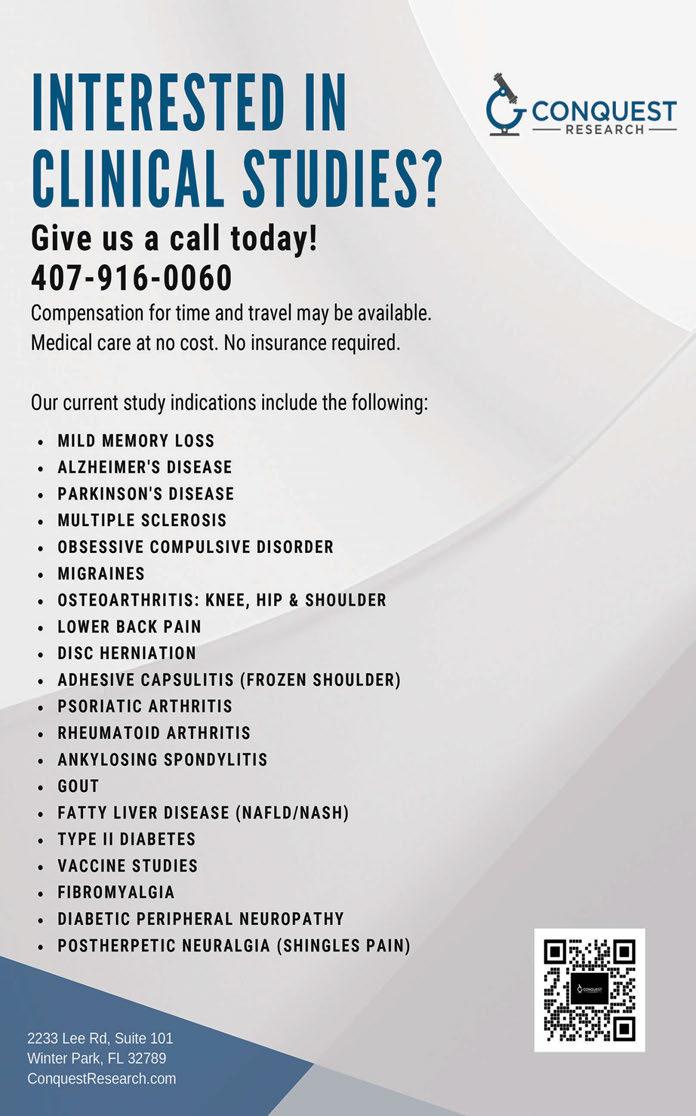
2 minute read
The Importance of Clinical Research Trials
One of the few silver linings we can take away from the recent Covid-19 pandemic is the remarkable speed in the development of vaccinations for the novel coronavirus. For comparison, the next fastest development of a vaccine (for mumps) took 4 years.
Many factors contributed to this modern medical miracle including improved technology, pooling of funds/resources, and worldwide collaboration. Another major factor is the surge of individuals willing to participate in clinical trials to confirm the benefit and safety of the vaccines.
The recent pandemic has proven how vital clinical research trials are to the advancement of medicine and has demystified what it means to be a clinical trial participant. Currently there are over 300,000 clinical trials across the globe, all searching for new ways to prevent, detect, or treat diseases. Worldwide, it is estimated that over 35 million individuals have Alzheimer’s Disease (AD) while in the US the figure is estimated to be 5.4 million individuals. The current FDA-approved treatment options for AD are limited in benefit and aimed at reducing symptoms. There are currently no therapies available to reverse and/or halt the progression of memory loss. The need for qualified individuals to consider trial participation has never been higher with recent breakthroughs from Eli Lilly and Biogen
The Importance of Clinical Research Trials showing tremendous promise. What are other reasons you might consider participating in a clinical trial?
1Being in a trial allows for close care and frequent monitoring of your medical condition(s) by a team of physicians and trained clinical research staff.
2Participation in a trial allows you to take an active role in your own health care. You will learn more about your condition from a thorough evaluation including medical history review, labs, and imaging studies.
3Trial participation is completely voluntary. Being part of a trial is a co-partnership between the research team and the patient. Trials also include ethical oversight committees to protect the rights and welfare of participants.
4Trial participation is free. No insurance is required. You may also receive compensation for your time and travel.
5You can help future generations including your children and grandchildren by contributing to science. ~ Editor’s Note: This article was submitted by Anand Patel, MD, a Principal Investigator and CMO of Conquest Research. He can be reached at 407-916-0060 or at info@conquestresearch.com. See ad on page 19.
Dr. Anand Patel, MD Anesthesiologist and Pain Management Specialist
Dr. Rebecca Gandhi, MD Neurologist
Dr. Melissa Agard, MD Internal Medicine Physician






